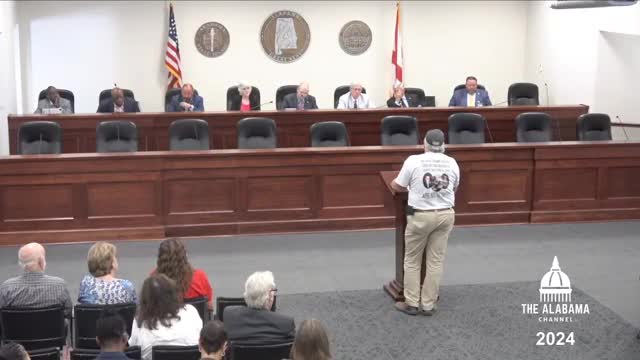Families Demand Justice Amid Alabama Prison Crisis
July 25, 2024 | Joint Interim Committees, Alabama Legislative Sessions, Alabama

This article was created by AI summarizing key points discussed. AI makes mistakes, so for full details and context, please refer to the video of the full meeting. Please report any errors so we can fix them. Report an error »

In a recent government meeting, alarming testimonies from family members of inmates highlighted severe issues within Alabama's prison system, particularly concerning the treatment of incarcerated individuals with disabilities and the rampant drug abuse that has led to preventable deaths.
One poignant account came from a father, who described the tragic death of his son, Chase, while incarcerated. He recounted how Chase was denied basic rehabilitation services and protective custody despite expressing fears for his safety. The father criticized the Alabama Department of Corrections (ADOC) for its lack of accountability and compassion, stating, \"I have absolutely no faith in the ADOC.\" He announced plans to raise awareness through billboards targeting prison officials and state leaders, expressing frustration over their inaccessibility.
Another speaker, Miss Warren, emphasized the need for rehabilitation over punishment, advocating for humane treatment of inmates. She referenced successful rehabilitation models from Norway, arguing that treating inmates with dignity could lead to better outcomes for society as a whole.
Michelle McLeod, another concerned family member, painted a grim picture of the prison environment, describing it as a \"drug-infested slum\" where inmates face neglect and abuse. She called for accountability from all levels of prison staff, highlighting cases where inmates were denied safety and medical care. McLeod's testimony underscored the urgent need for reform, stating, \"These people are being allowed to run the biggest drug pen in the state of Alabama.\"
The meeting underscored a growing concern among families and advocates regarding the conditions within Alabama's prisons, calling for immediate action to address the systemic failures that have led to suffering and loss of life among incarcerated individuals.
One poignant account came from a father, who described the tragic death of his son, Chase, while incarcerated. He recounted how Chase was denied basic rehabilitation services and protective custody despite expressing fears for his safety. The father criticized the Alabama Department of Corrections (ADOC) for its lack of accountability and compassion, stating, \"I have absolutely no faith in the ADOC.\" He announced plans to raise awareness through billboards targeting prison officials and state leaders, expressing frustration over their inaccessibility.
Another speaker, Miss Warren, emphasized the need for rehabilitation over punishment, advocating for humane treatment of inmates. She referenced successful rehabilitation models from Norway, arguing that treating inmates with dignity could lead to better outcomes for society as a whole.
Michelle McLeod, another concerned family member, painted a grim picture of the prison environment, describing it as a \"drug-infested slum\" where inmates face neglect and abuse. She called for accountability from all levels of prison staff, highlighting cases where inmates were denied safety and medical care. McLeod's testimony underscored the urgent need for reform, stating, \"These people are being allowed to run the biggest drug pen in the state of Alabama.\"
The meeting underscored a growing concern among families and advocates regarding the conditions within Alabama's prisons, calling for immediate action to address the systemic failures that have led to suffering and loss of life among incarcerated individuals.
View full meeting
This article is based on a recent meeting—watch the full video and explore the complete transcript for deeper insights into the discussion.
View full meeting
